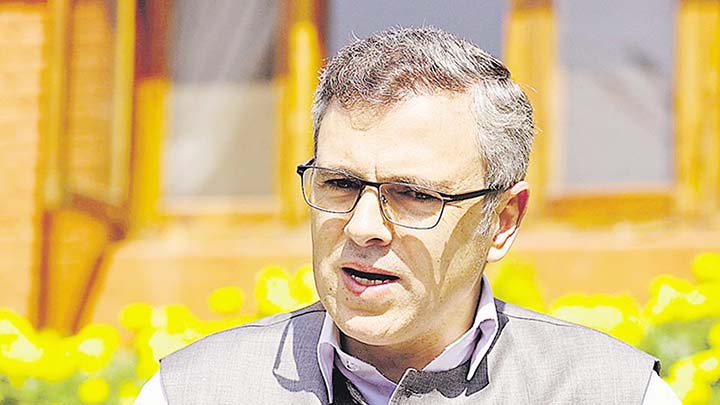
AP, New Delhi:
Omar Abdullah’s National Conference has appealed in the Supreme Court against the government’s move to scrap Jammu and Kashmir’s special status and divide the state into two union territories. In its petition – filed by party MPs Akbar Lone and Hasnain Masoodi – the party claimed the centre’s move was “illegal”.
Omar Abdullah and another former chief minister Mehbooba Mufti and hundreds of political leaders are under arrest as the state remains under lockdown. More than 50,000 security personnel have been deputed in the state in addition to the regular troops to maintain law and order.
The National Conference has contended that the special status has been given to Jammu and Kashmir under the Constitution and the presidential order to scrap them is constitutionally invalid, since the consent of the assembly of Jammu and Kashmir has not been taken.
The government has clarified that since the state was under President’s rule, the powers of the assembly of Jammu and Kashmir devolved upon parliament, empowering it to speak for the state.
The government has used a provision under the Article 370 that empowers the President to declare the special status inoperative anytime. The Section 3 of the Article 370 states: “Notwithstanding anything in the foregoing provisions of this article, the President may, by public notification, declare that this article shall cease to be operative or shall be operative only with such exceptions and modifications and from such date as he may specify”.
The petition has argued that the President himself was acting on the advice of the union cabinet, so it amounts to the “same constitutional functionary taking its own consent, to effect a fundamental structural change without consultation or concurrence of the persons affected by that change, or their elected representatives”. This, the petition said, was “arbitrary” and “contrary to the rule of law”.
The petition further said the Jammu and Kashmir (Reorganisation) Act, 2019 – under which the state was divided into two union territories, is “constitutionally invalid”.
The Constitution does not permit parliament to retrogressively downgrade statehood into a less representative form such as a union territory, the petition said.
Ending the special status was a “total betrayal of the trust that the people of Jammu & Kashmir had reposed in India when the State acceded to it in 1947,” Omar Abdullah had earlier tweeted.
Today’s petition said the government decision “amounts to an overnight abrogation of the democratic rights and freedoms guaranteed to the people of the State of Jammu and Kashmir upon its accession”.
Another regional leader, Mehbooba Mufti of the PDP also attacked the Centre over the move and called it ‘the darkest day in Indian democracy’.Her party’s MPs Nazir Ahmad Laway and MM Fayaz had attempted to tear the constitution when the bill was introduced in the upper house. Fayaz also tore his kurta in protest.
The scrapping of Article 370 has led to split legal opinion on the validity of Centre’s move, while several legal experts agree with the government that the J-K Governor had the authority to recommend its abrogation in the absence of J&K Assembly, several others suggest it was against the spirit of the Article.
Whether Article 370 should have been treated as a permanent or temporary provision, was also debated by legal luminaries and political parties across the spectrum.
Parties in Jammu and Kashmir suggest that special provisions in Article 370 enabled J&K’s accession to India and disabling it is beyond the remit of Indian constitution.
Under Article 370 of the constitution, the state of Jammu and Kashmir enjoyed complete autonomy and the state legislature was free to draft its own laws except in the areas of communications, defence, finance, and foreign affairs, while non-state subjects were prohibited from purchasing land in the state.

